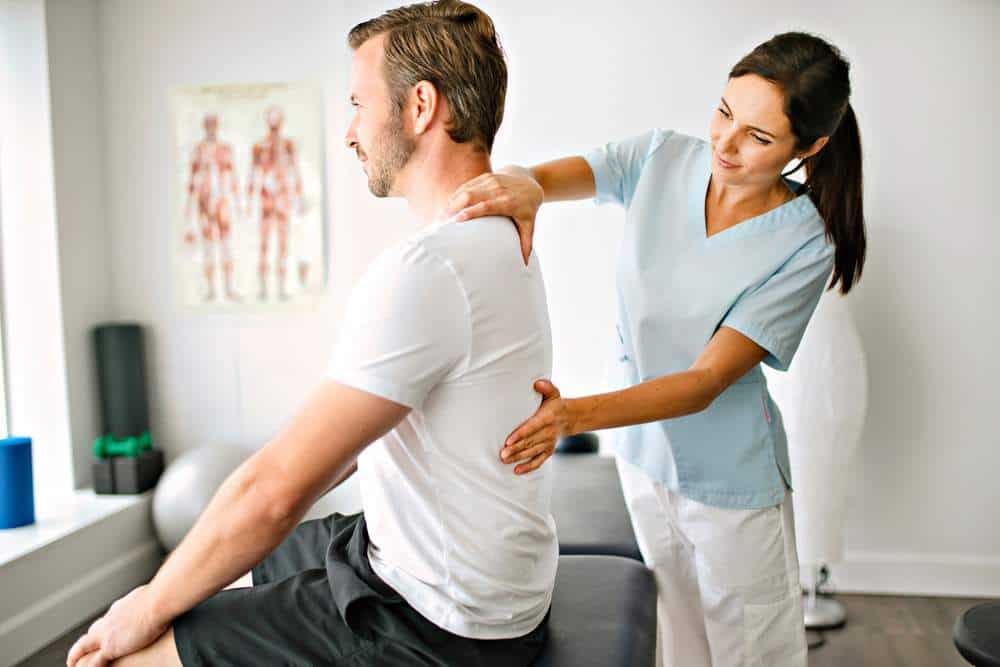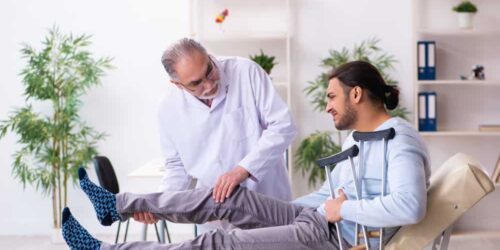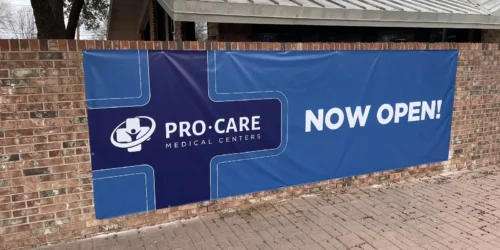All car accidents, from minor fender benders to larger, more complex incidents, cause some form of trauma to all parties involved. Sometimes, that trauma is primarily mental and emotional. But for over three million people each day, the trauma is physical and comes in the form of injury. Such injuries may be minor, but plenty of people experience major problems that put them out of commission for weeks or months at a time. The good news? With the right approach to car accident recovery, you can heal faster and regain your strength.
This car accident recovery guide is designed to help you navigate the healing process after an auto accident, offering actionable advice for every stage of recovery. It details everything you need to know about healing after a car wreck, from the immediate steps to take at the scene to long-term strategies for regaining your health and well-being.
No matter the severity of your injuries, recovery is possible—and with the right approach, you can reclaim your health and get back to living your life!
How Long Does It Take To Recover After A Car Accident?
The amount of time required for recovery after experiencing an injury during a car accident will depend on many factors. The questions below are some examples of factors to consider. For the most common injuries sustained in car accidents, like broken bones, severe bruising, concussions, and whiplash, recovery can take anywhere from 6 to 8 weeks.
Ask yourself:
- How severe was the car accident and the resulting injury or injuries?
- How old are you, and what was your health generally like prior to the accident?
- Do you have any underlying conditions that could complicate your recovery?
- How soon after the injury did you seek medical attention?
- How faithfully are you practicing the techniques and exercises recommended to you by a personal injury doctor or chiropractor?
Car Accident Recovery-Your Immediate First Steps After a Wreck
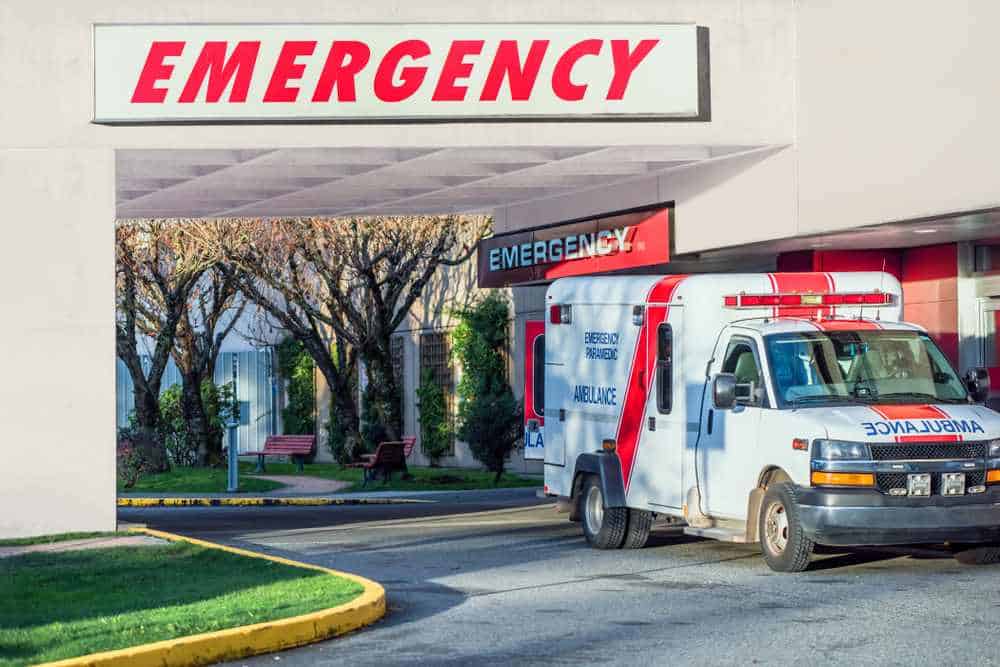
After the initial shock of a car accident, you may find that you feel physically fine. However, even if you don’t immediately suspect an injury, there is a chance that the accident could have caused a condition that will not make itself known for hours or even days. This is partly due to the body’s natural release of hormones as a reaction to stress, which helps limit pain sensations. For this reason, it is important to visit a medical professional as soon as possible after a car accident occurs, which is doubly true if you are experiencing any kind of new pain or discomfort.
When you visit a doctor after being in a car accident, they will complete a thorough evaluation. They will most likely ask a series of questions about how you felt before, during, and after the incident. It is important to give as clear an answer as possible, as clarity will help your medical team make the best, most informed decision. They may ask to examine certain parts of your body, especially any areas in which you are currently feeling pain.
Depending on any diagnosis you may receive, your doctor may do the following:
- Order further testing and imaging
- Prescribe medication for pain management
- Recommend certain home remedies to help manage your condition
- Refer you to a chiropractor or another medical specialist
Emergency Treatment After Car Accident
Many people can walk away from car accidents relatively unharmed or with minor injuries that will heal in their own time. There are, however, often cases where emergency treatment is required. In fact, there are around 3 million car accident-related visits to the emergency room each year.
Emergency rooms can be crowded, and finite resources are available, so it’s essential to save that option for true emergencies. In general, you can determine whether there is a true emergency by considering whether delay in treatment will result in significant harm. For example, you can visit an urgent care facility to care for a laceration or a broken finger.
On the other hand, you will need emergency care if you have experienced:
- Any trauma to the head or abdomen,
- Are experiencing a sudden headache,
- Suspect you may have broken a major bone, like an arm or leg,
- Feel numbness in some part of your body,
- Or, are having trouble breathing.
At the site of the accident, this could mean first aid or CPR from someone who is trained, as well as care from an Emergency Medical Technician (EMT) in an ambulance on the way to the hospital.
Next, Develop a Car Accident Recovery Plan
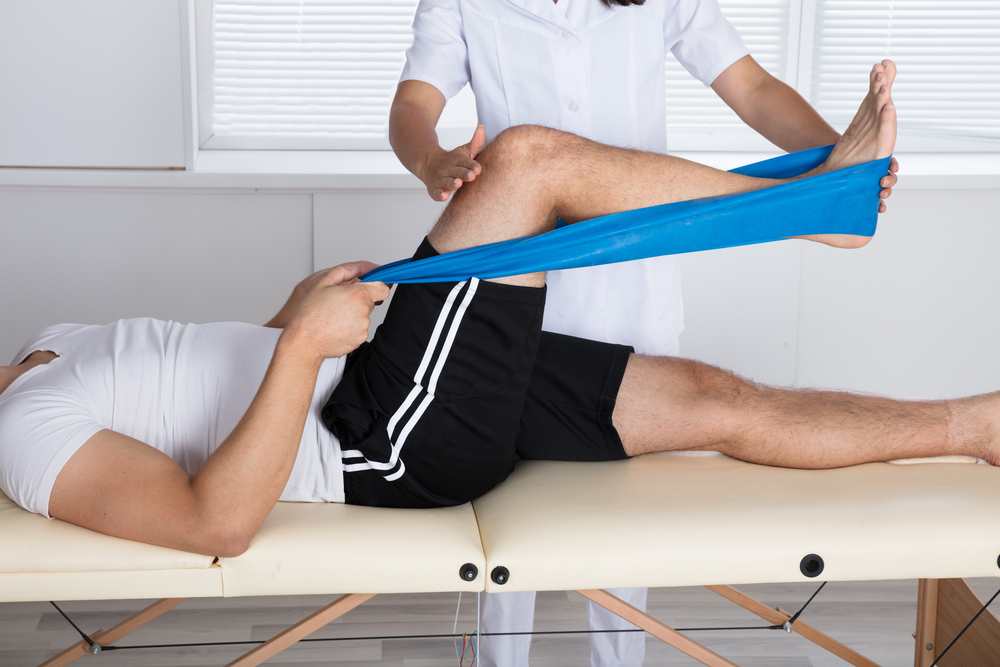
Recovering from a car accident can feel overwhelming, but having a clear recovery plan makes all the difference. Start by working with experienced car accident doctors who can guide you through your options and recommend treatments that fit your needs. Chiropractic care and active rehab can help you regain strength and ease pain, while medications might provide relief as your body heals. In more serious cases, surgery could be required to address major injuries.
In the next few sections, we’ll cover all of these treatment options and explain how they can support your recovery, step by step.
Learn what doctor to see after a car crash by reading our blog post here.
Is Chiropractic Treatment After a Car Crash Needed?
A chiropractor can make a world of difference when it comes to recovery from a car accident. Many people believe that chiropractors are only helpful for back pain-related problems, but the truth is that chiropractic care can help with all kinds of problems. When you’re in a car accident, the impact can throw your body out of alignment.
A chiropractor’s work is to figure out where that misalignment is strongest and manipulate your body to help rediscover its balance. In fact, chiropractic care may be one of the most important things you can do for your body to get better from injury after being involved in a wreck.
Seeing a chiropractor after a car accident can ensure a faster and more complete recovery. For one thing, chiropractic care can help reduce inflammation in the body. After an injury, your immune system sends out inflammatory cells that travel through your bloodstream. This response is significant because it jumpstarts the healing process. Unfortunately, the buildup of inflammatory cells can also cause pain, tenderness, and swelling. When a chiropractor manipulates your spine, it can help limit the number of inflammatory cells sent to the site of injury, resulting in reduced pain.
Some car accident injuries cause you to lose your range of motion in some areas of your body, such as your shoulders, back, or hips. Click “Play” below to learn about the most car accident injuries our medical specialists see most often:
Spine realignment helps retrain your body so that you can move with less pain and stiffness. Restoring your range of motion is important in healing after a car accident because it allows you to move around more safely, with less chance for further injury. Chiropractic care can also reduce scarring in the area of injury. Chiropractors use special techniques to manipulate your body in ways that deal with collagen buildup, creating scars. If scarring is a worry you have after experiencing a car accident, you’ll definitely want to visit a chiropractor in the days and weeks after the incident.
After addressing any emergencies related to a car accident, your next step should be to visit a chiropractor regularly and as soon as possible. Doing so will ensure a smooth and peaceful recovery process.
How Car Accident Doctors Help You Recover
Managing your pain as you recover from a car accident can be tricky. Even with a good doctor and adherence to your treatment plan, sometimes you still need even more support. Chiropractic care is a great option for helping you through recovery, and it yields lots of benefits that may not be entirely obvious. So, why should you visit a chiropractor after a car accident?
- Chiropractors are adept at identifying injuries. Sometimes, even a good doctor can miss the signs of an injury. Chiropractors are trained to identify injuries that cause spine misalignment, like whiplash or other common car accident-related injuries.
- Your pain will be taken seriously. It can be difficult to get adequate care. Chiropractors are empathetic and will help you deal with pain that other medical professionals may not.
- You can manage your pain without medication or other invasive treatments. Although these treatments are sometimes necessary, chiropractic care lowers the frequency or length of medication use and can even prevent the need for surgery.
- You will develop less scar tissue. The way chiropractors manipulate your tissues helps release the buildup of collagen so that scars heal more smoothly.
- Less inflammation means less pain. Chiropractors are trained to help your body flush out inflammatory cells more often so that you experience less pain.
- Chiropractors help you restore your range of motion. This important step towards recovery means that you’ll be able to move the way you’re used to so that you can get back to your amazing life.
Find a chiropractor in Texas near you
How Active Rehabilitation Helps After A Car Accident
Given fears around surgery and habit-forming medication, it’s no surprise that many people look for other options to aid their recovery after suffering an injury due to a car accident. One of the best things you can do as part of your healing process is to work with a specialist in active rehabilitation. Typically paired with chiropractic care, active rehabilitation can benefit anyone, regardless of ability or recovery status, but it will be particularly helpful for those who have suffered a recent injury.
Doctors trained in active rehab support your return to health with targeted, individualized exercises and techniques. Their practices are minimally invasive but extremely effective, as long as you adhere to your plan and continue doing the recommended exercises at home on the schedule given to you by your specialist.
When you work with a provider who specializes in active rehab such as a chiropractor, you will likely be working towards several goals at once: to strengthen the areas that were affected in the car accident, increase strength in weak areas to prevent recurring injury, and increase mobility and flexibility. Some of the things they might do are:
- Massage the affected area to relieve pain and tension or encourage increased blood flow.
- Manipulation of certain parts of your body to help reduce inflammation and scarring, increase the creation of new tissues, and mobilize joints that you have kept immobilized as part of your treatment.
- Customize exercises to target specific areas of the body or specific needs, like shoulder pain or an altered gait.
- Train your posture to help strengthen your core and prevent further injury to the trunk of your body.
When is Surgery Needed After a Car Accident?
Car accidents sometimes result in injuries that require surgery before your body can truly begin to recover. Some conditions will require emergency interventions that include surgery. Surgery can also become necessary after a condition does not improve with other treatment options. Although the idea of surgery can be scary to many people, the truth is that medical advances are happening all the time. Surgery is an increasingly safe practice that rarely causes significant issues.
It can be challenging to determine which injuries will require surgical intervention. Often it will depend on the severity or location of the injury. There are, however, a few forms of physical trauma that result in surgery more than others. That being said, here are some of the most common surgeries that may be required after a car crash:
Internal injuries and internal bleeding
Many of your most vital internal organs are protected by your rib cage. Trauma to your abdomen may result in broken ribs, which can puncture those organs. Sometimes, foreign objects can also cause punctures, and the force your body endures during impact can result in crushing. The degree of internal bleeding and injuries can range from minor problems requiring only minimally invasive intervention to complex multi-organ injuries requiring considerable repair.
Broken bones
Bone fractures are usually best treated with immobilization, using a cast or similar tool. However, there are times when a bone breaks in multiple places or shatters from being crushed. In those instances, a doctor will need to perform surgery to install hardware like plates and rods that will keep your bones in place.
Traumatic brain injuries
A traumatic brain injury is one of the most severe forms of injury commonly sustained in car accidents. When a blow to the head causes pain or discomfort, the resulting injury could be as relatively minor as a concussion – or it could mean a condition that causes seizures, vision problems, loss of memory or language, or other significant, long-term problems. Sometimes, brain surgery is required to prevent or limit the effects of these severe injuries.
Injuries to the back
Your spinal cord ensures that messages from your brain reach the rest of your body, ensuring that both voluntary and involuntary processes occur as needed. Injuries to the spinal cord like damage to the vertebrae or herniated discs are extremely painful and can interrupt messages, causing problems like difficulty moving limbs or trouble with involuntary processes like waste removal. There are several forms of surgery that address different kinds of spinal injuries.
Soft tissue injuries
Tears, strains, and other injuries to soft tissues usually heal with time and rest. Sometimes, though, recurring problems or serious damage may require surgery. Doctors will usually suggest alternative therapies before going this route.
Cosmetic surgery
There is a cultural narrative that cosmetic surgery is frivolous or unnecessary, but in reality, cosmetic surgery can address a number of complications that occur during motor vehicle crashes. Severe accidents may disfigure you in a way that may make it difficult for you to return to your life as normal. Burns and scarring are frequent, as well as other disfigurements. Cosmetic surgery can help restore you back to what you looked like before the accident.
Need to Find a Doctor Post-Accident? Learn These Tips From Our Medical Experts
Medication’s Role in Auto Accident Recovery
After a car accident, you will collaborate with a team of medical professionals to address any injuries. Such plans often include recommendations about rest and exercise, referrals to other specialists like chiropractors and even referrals to use certain medical equipment. Treatment plans may also include these types of medicines:
1. Painkillers and Anti-Inflammatory Medications
If you are experiencing any pain, chances are that before trying anything else, doctors will suggest over-the-counter painkillers, like non-steroidal anti-inflammatory drugs, or NSAIDs. The most well-known NSAIDs are:
- Ibuprofen
- Aspirin
- Acetaminophen
As long as you heed the warnings on the label, NSAIDs are safe and are not habit-forming. They also adequately target ailments like headaches, muscle cramps, or other common forms of post-accident pain.
Sometimes, though, over-the-counter medication is too weak or does not target the actual problem. In these cases, doctors will carefully weigh what they know about your medical history and any other medications you may be taking.
Be sure to be thorough and honest, even about illegal substances, because some drugs cause fatal or extremely debilitating interactions.
Opioids are one such class of medication frequently prescribed in car crash cases. While opioids are very effective for treating pain, they also carry a long list of side effects, including habit formation and physical dependence. It’s also possible to build up a tolerance to opioids, requiring you to take larger doses, prolonging recovery and increasing the likelihood of addiction.
2. Antibiotics
Injuries like lacerations, bruising, broken bones, other punctures, and crushing wounds can leave you vulnerable to infection. Antibiotics can be prescribed to protect you from this. It’s important to look out for signs of infection, like fever or tenderness and redness around the site of injury, so that you can report them to your doctor.
3. Antidepressants
Medication may also be prescribed to help you with your mental well-being. Around 45% of people who have been in a car accident begin taking antidepressants as part of their recovery. If your anxiety increases to a debilitating level after you suffer a car accident, that too can be addressed with medication, along with support from a mental health professional.
Healthy Habits for a Faster Recovery After a Car Accident
When recovering from a car accident, you and your medical team – including your doctor, chiropractor, and anyone else you trust to make medical decisions – will develop a treatment plan. Your plan will most likely include medication, daily recommended exercises and stretches, a reminder to stay hydrated, and certain foods that you should eat more of or avoid altogether.
Combining healthy habits, good nutrition, and exercise together with medical interventions like medicine can determine whether your auto accident recovery process is quick and complete or slow and ongoing. Thus, you must follow this plan as agreed. Failing to do so could have unintended consequences that could last months, if not years.
In the next few sections, we are outlining our recommendations and advice for how you can create these healthy habits, and maintain them so you can heal faster!
How Healthy Routines Can Help You Recover From a Car Accident
Suggest skipping a child’s nighttime routine to a parent, and they’ll tell you that to do so is tantamount to disaster. Yet while most can accept that children require routine to thrive, we tend to forget to apply the same logic to adults, even though those who form and keep healthy habits are the most likely to maintain a healthy weight and physical fitness.
Routine is also essential for healing after traumatic events, like car accidents. Sticking to a routine can:
- Speed up the recovery process,
- Help you manage your mental health,
- And, even make your body stronger than it was before the accident!
Despite this, only about half of adults regularly follow the health recommendations made by a doctor after an injury or illness. Non-adherence can have an adverse effect: those who fail to follow recommendations may end up with more chronic pain and illness, require more time to recuperate, and are much more likely to experience recurring trauma in the affected areas of their body.
What to Eat to Recover Faster After a Car Accident

Nutrition is an often overlooked part of a quick recovery, and many post-accident treatment plans fail to address how maintaining a healthy diet is one of the best remedies for any injury. In fact, research suggests that nutrition may have the power to optimize the healing process, allowing you to restore your strength and get back to your normal life more quickly. There are several important areas of nutrition you’ll want to pay attention to as your recover. Those include:
- Proteins
- Fatty Acids
- Nutrients such as vitamin C, zinc, and more.
1. Proteins
Some foods can benefit anyone with an injury. Healing from physical trauma requires an increase in caloric intake due to the energy that is used. Therefore, high-quality proteins are necessary for anyone recovering from a car accident injury. Eggs, meat, dairy, and fish are the best ways to get high-quality proteins into your diet. The best choices are:
- Poultry like chicken or turkey
- Fish
- Dairy products, including milk and yogurt
- Eggs
- Lean beef and red meat
Some foods provide certain benefits depending on the kind of injury you have sustained. For example, injuries to the bone require specific nutrients that are not necessarily important for muscle injuries.
2: Omega-3 Fatty Acids
For pain management, try increasing your omega-3 fatty acid intake. Omega-3s help reduce inflammation, which is the process through which you sense pain. Try:
- Fish
- Nuts
- Flaxseed
- Chia seeds
3: Important Vitamins and Minerals
For muscle injuries, zinc and creatine are both necessary for proper healing. Without zinc, recovery may take much longer, while creatine restores muscle mass. Zinc can be found in fish, seeds, nuts, and whole grains. Creatine is present in meat, poultry, and fish.
For soft tissue injuries, make sure to eat fruits and vegetables high in vitamin C. This nutrient is a key part of forming collagen, which allows wounds to heal. (Collagen is the material that scars are made of.) Look for these vitamin C-rich foods in your produce aisle:
- Citrus fruits (oranges, grapefruits, and lemons)
- Bell peppers, particularly red, yellow, and orange
- Tomatoes
- Kiwi
- Dark leafy greens (arugula, bok choy, kale, mustard greens, etc.)
- Berries
Broken bones require magnesium, silicon, vitamin K, and of course, calcium. Each of these vitamins is found in supplements, but you can also increase your intake by eating:
- Nuts
- Legumes
- Dairy
- Carrots
- Whole Grains
- Leafy Greens
How Fluids Help with Recovering From a Car Accident Healing
Your body is made up of 60% water, and without water to do its many jobs, you will begin to feel sick, weak, and exhausted. This is even more true when recovering from an injury due to a car accident. Hydration is a vital factor in your body’s natural healing response. Each step of recovery requires water, which must be constantly replaced by drinking fluids.
When you sustain an injury, your immune system floods your body with inflammatory cells, which help jumpstart your healing process. While inflammation plays a role, too much can cause discomfort and pain. Proper hydration ensures that inflammation is flushed out more quickly, reducing your pain levels.
After the inflammatory phase, wounds enter the proliferative phase. That is when the tissues begin to rebuild with collagen. Sometimes, that means restructuring your blood vessels or even your nerves. Collagen is mostly made up of water, and moisture is important for the elasticity, density, and strength of the new tissues.
As scar tissues heal, you will feel more like your old self. The new tissue must seamlessly connect with your older tissues, requiring collagen. The maturation phase helps to smooth over the edges of those connections, and better hydration means less scarring and more well-integrated tissues.
Ideas around the “best” level of water consumption have changed as we have become more knowledgeable about its role in the optimal performance of human bodies. A good rule of thumb is to drink between half an ounce and an ounce for each pound you weigh. Therefore, if you weigh 140 pounds, your ideal goal would be to drink between 70 and 140 ounces of water each day. The higher end of that range should be your goal while recovering from an injury.
The Importance of Staying Active During Accident Recovery

In a car accident, your body experiences a series of traumatic events…
Your endocrine system floods your bloodstream with adrenaline, causing your heart to beat faster, your senses to sharpen, and your strength and stamina to momentarily increase.
Then, the impact causes your body to shake…
The release of the airbags and the sudden force may cause elements of the car’s interior to be disturbed, which could mean you get hit with small projectiles.
Finally, once the car comes to a rest, you’ll begin to notice the first signs that you’ve been injured. You may feel scared or any number of emotions.
All of these events put stress on the body. The adrenaline rush was important for the initial reaction to the accident, but prolonged adrenaline exposure can cause damage to your heart or blood vessels; you may experience high blood pressure, and you’ll definitely feel exhausted once you begin to relax. The violent back-and-forth movements of your body cause your muscles to work harder and move in unfamiliar ways, which results in damaged tissues. The force of the impact can mean broken bones or crushed ribs. .
Is Too Much Rest a Bad Thing?
If you’ve experienced injuries like these from a car accident, your first impulse, after visiting a doctor to diagnose and treat any problems, might be to take it easy for a while. That’s a great idea… to an extent.
People used to believe that if you experienced an injury, you needed to rest, rest, rest. However, recent research suggests that too much rest can actually prolong the recovery phase and make it more difficult for you to rehabilitate. This is especially true for injuries to muscles, soft tissues, and bones.
Most doctors recommend at least 48 hours of rest after a car accident. Then, depending on the severity of your injury, you may be cleared to slowly reintegrate daily exercise. Simple exercises and stretches are the best bet for a safe healing journey.
What Stretches Can I Do To Aid Recovery After A Car Accident?
Stretching is one of the most beneficial forms of activity. It can increase flexibility, improve your range of motion, prevent injury, and help you with attention and focus. And those are just some things a good stretching routine can do before a car accident.
When you do get into a motor vehicle accident, even if you walk away relatively unharmed, your body undergoes a lot of stress. Your shoulders and back may tense up, and other parts of your body may experience stiffness if you have suffered some form of injury. If there is little chance that you have a serious injury and your doctor has cleared you to return to normal activity but you’re still feeling “off,” you might be wondering how to deal with sore muscles and stiffness as you recover.
Research suggests that during the healing process, stretching promotes the rebuilding of new tissues (myogenesis) while reducing scarring (fibrosis). Moreover, stretching can help limit the pain and restore strength and flexibility more quickly. Stretching is also a key part of rehabilitation which can help you address specific weaknesses and injuries with the help of an expert.
After your car accident, your doctor may not be concerned that you have any specific problems, but soreness can still be an issue for you. On our YouTube channel you’ll find videos with stretches that can release the buildup of tension you’ve been experiencing and can help make it easier for you to go about your day.
Important Note: Your neck, shoulders, and back are probably a significant pain point after your accident. You may have experienced whiplash – in which case, you should only practice these exercises under supervision from a medical professional – or you may just be carrying tension in this area due to the stress of having just experienced a crash. Try the stretches below for three sets of ten seconds each, twice a day, to help release the tension.
Addressing Emotional and Mental Health After a Car Accident

The physical injuries resulting from a car crash can take precedence because of their urgency. But regardless of the severity of the accident you experienced, it’s important to make time to recognize and manage the effects on your mental health as well.
Injuries have a significant impact on mental well-being. Car accidents are traumatic experiences. Any time you go through something traumatic, it can take a mental and emotional toll. If you let it simmer for too long without addressing it, those feelings can transform into a much bigger problem that takes up precious time and energy.
Taking Care of Your Mental Health After a Wreck
Ignoring your mental state and trying too quickly to go back to “normal” without taking time to rest may eventually make things worse. Therefore, it’s best to deal with your feelings after the car accident. Whatever emotions you may be having – guilt, embarrassment, sadness, anger, or anything else – you can take steps to process them so that you can begin healing your inner self as well as your physical body.
1. Journaling
Writing can be one of the best ways to manage difficult emotions. Getting everything out on paper can stop you from dwelling on an experience you’ve had, or it can help you organize a jumbled mess of feelings.
2. Exercise
Movement and exercise help by releasing endorphins, which create positive feelings. Regular exercise is associated with lessened negative emotion and fewer depressive episodes. Those benefits multiply when you engage in exercise in a social setting, like with a friend or in a class.
3. Take time off
Although it may feel like idle time will make you feel worse, allowing yourself some time to sit and think about what you’ve been through can make a difference in the long run. If you get into an accident while on your morning commute, plan to take the rest of the day off. If it happens later in the day, take the next day or two off. Healing takes time.
How to Open Up To Your Loved Ones To Help Recover From A Car Crash
When something traumatic happens, it can feel isolating. You may struggle to open up to people you trust for fear of judgment or some other worry. It can be hard to ignore the urge to keep quiet and not burden anyone else with your feelings. But your loved ones can help!
After all, social support is one of the most important factors for preventing long-term emotional disorders. Letting your friends and family in can be a major help in the recovery of your mental health after a car accident. Read below for a few simple ways to get started.
1. Share a meal.
There’s a reason so many people draw a connection between food and love. Sharing food to express positive emotions about a person is one of the earliest forms of human social connection. Sharing food can regulate the nervous system for both the person providing the food and the person who eats it. By allowing a loved one to make you dinner or take you out for a meal, you can build a deeper relationship that results in more positive feelings all around.
2. Ask for advice.
It’s difficult to navigate a new situation on your own. The good news, it’s likely that someone in your support network has been through something similar. They may have a piece of practical advice – like the best lawyer to call or the most helpful chiropractor– or they may have a good idea for dealing with some of the emotional aftermath. If there’s something you don’t know but think could help you, ask a friend or a family member.
3. Do it in writing.
If you struggle to have deep, personal conversations face-to-face, communication through email or text can help bridge the gap. Writing allows you to get down your words exactly the way you want them, and afterward, you’ll have a record of your conversation that you can go back to whenever you need it.
Car Crashes Can Be Traumatic–Seek Professional Help If Needed
Sometimes, a car accident leaves an indelible mark on your mental and emotional wellness, and the feelings you experience run deep. There are times when professional support is necessary to help you regain your equilibrium.
1. Post-Traumatic Disorder
Around half of all survivors of car accidents develop Post-Traumatic Stress Disorder, otherwise known as PTSD. The likelihood of this diagnosis increases when a party involved dies or suffers a severe injury. Age, gender, and the status of your mental health prior to the accident can also have an impact on whether you develop PTSD.
Psychiatrists use a text known as the DSM-V to diagnose mental and emotional disorders. Your doctor will look for the following behaviors to determine whether you may be experiencing PTSD.
- Flashbacks or short periods where you feel like you are re-experiencing the incident
- Avoidance of specific things, like crowds, leaving your house, or something related to the accident
- Increased arousal of the nervous system and physiological reactivity – one example is being much more easily startled than you used to be
- Significant and prolonged changes in mood
- Changes in cognition affecting attention, focus, and memory
The good news is that the earlier you seek professional help for PTSD, the better your outcome will be. It’s also very unlikely that the symptoms will last forever. Just like a physical injury, it is indeed possible to get better.
2 Anxiety Disorders
PTSD is just one kind of anxiety disorder, but there are several others that can develop as a result of a car crash. One such disorder commonly seen in car accident survivors is Generalized Anxiety Disorder (GAD).
It can be hard to recognize GAD because some level of anxiety is normal for everyone. It frequently happens around certain worry-inducing topics, like relationships or money. But persistent worry that affects your everyday life is debilitating that requires professional help.
Anxiety is important to address, especially if it affects the way you drive. Although it may seem like hypervigilance is a good thing to have in your toolbelt as a driver, research shows that heightened anxiety leads to worse driving. If your anxiety continues unchecked, it may endanger you further and increase your risk of being in another crash.
3. Depression
Like anxiety, brief periods of depression are normal. Consider what happens after a break-up or the way it can feel difficult to readjust to everyday life after a vacation. Up to two-thirds of people who have experienced a car accident experience depression in the aftermath.
Most people recover eventually and begin to feel the way they once did. But many people develop severe depression that has a major impact on their quality of life. Sometimes, severe depression leads to thoughts of suicide.
You are particularly at risk if there is a history of severe depression in your family, if you have a limited social support network, and if you have experienced suicidality before or if there is a family history of suicide. You are also twice as likely to develop severe depression if you are a woman.
Knowing the warning signs of depression can help you recognize when it’s time to seek professional help from a psychiatrist or psychologist for your mental health:
- Anhedonia, or the lack of interest in things that usually bring you joy
- Guilt or feelings of worthlessness or irrelevance
- Increased fatigue and unexplained aches and pains
- Insomnia
- Too much sleep
- Decreased appetite
- Unexplained weight loss or weight gain
Treatment for depression has come a long way. Many people take medication daily to manage their symptoms, and other experimental forms of medicine have grown more popular in recent years. Visiting a therapist can help, as can staying active or building a stronger support network.
Building and Maintaining a Routine That Supports Car Accident Recovery

Adherence to a daily routine is associated with greater resilience against stressful events like car accidents. Routines that promote healthy habits and are consistent but flexible can protect you from more adverse mental health effects.
A strong daily routine leaves room for regular hygiene, adequate nutrition, adequate sleep, time for loved ones, time to focus on hobbies or whatever may bring you joy, and, in the case of those recovering from car accident injuries, enough time to complete the exercises a doctor or chiropractor has assigned you.
Still, while it can be relatively simple to plan out a routine for yourself, it can be much harder to sustain that routine. Using tools that address problems ahead of time can ensure that you continue to follow your routine even if it gets interrupted or delayed for any reason. Here are some ways to make sure you stick to your routine:
1. Take baby steps.
Changing a routine all at once makes it much harder to keep up. Make small changes each day until you feel comfortable making bigger steps.
2. Track your progress.
Monitoring your progress towards your goals makes those goals easier to maintain. You can use an app that tracks daily habits, or you can use a chart or some other paper-and-pencil format.
3. Build in logical “if, then” scenarios.
If you go to the bathroom after breakfast, then you also brush your teeth. If you wear your gym shoes, then you drive to the gym. Connecting everyday events with things that will help you form good habits can make those habits last longer.
4. Allow yourself to fail.
Sometimes, making one mistake will cause people to give up altogether. There will be days when you don’t get to everything you want to do, and that’s okay. Remind yourself that tomorrow is another day, and try again.
Learn How We Can Help With Your Car Accident Recovery
Recovering from a car accident can be a challenging journey, but with the right steps, resources, and professional support, you can regain your health and return to your daily life. Whether you’re in Austin, San Antonio, or Central Texas, our clinics are here to help you every step of the way.
Our pain management and car accident chiropractic specialists provide personalized care to address your injuries and accelerate your recovery process. From tailored treatment plans to compassionate support, we’re committed to helping you heal faster and feel better.
Don’t let car accident injuries hold you back. From Round Rock to Kyle, Texas and now Lubbock, our chiropractic clinics are here to help you every step of the way. Schedule an appointment today or visit our Locations page to find a clinic near you. Let us guide you toward a healthier, pain-free future!
Looking for more resources to help you after a car accident? Explore our other guides here:
- Preparing to Go Back to Work after a Wreck
- What To Do After An Auto Accident in Texas
- Auto Accident Injuries: Symptoms & Treatments
- What Kind Of Doctor To See After An Accident
- 3 Delayed Post-Accident Injuries
- How to Find a Doctor After a Car Wreck
How Car Accident Doctors Help You Recover
